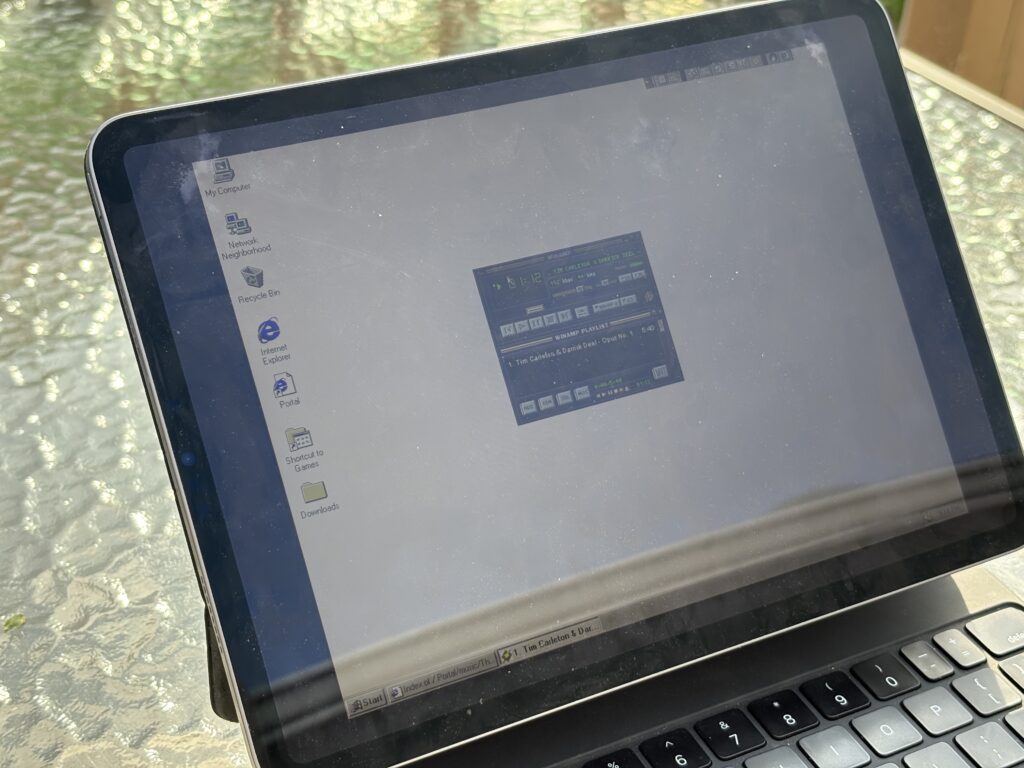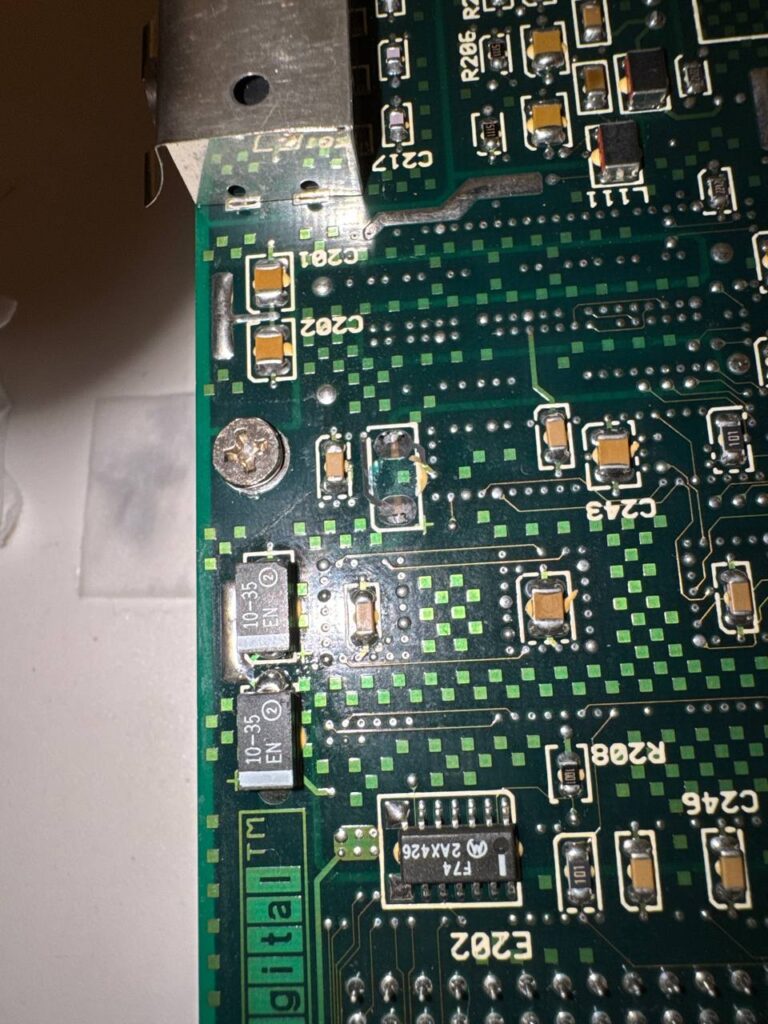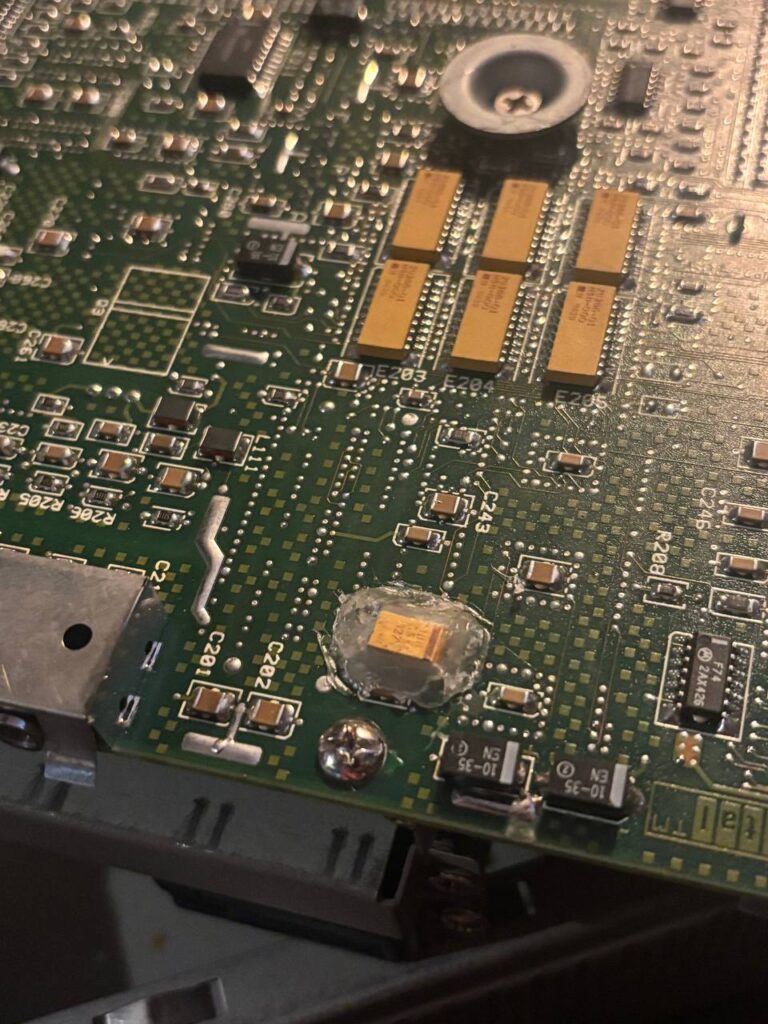Showing Up is a 2023 slice-of-life movie directed by Kelly Reichardt, about the day to day troubles of a sculptor named Lizzy. I quite liked it. Most people talk about the movie commenting on the artistic process (i.e. a kiln gone wrong and her disappointment, while others suggest embracing the flaws). However, what struck me the most was the protagonist’s struggles with others taking responsibility. Spoilers below!
Continue readingThe Brave Little Toaster as a Horror Film Series
The Brave Little Toaster film series, covers some rather adult topics for a film series ultimately intended for kids. How many children’s films can you think of that feature abandonment, loneliness, self-sacrifice, self-worth, fate, and, most shocking of all, suicide?
I will not be discussing every story beat as at this point I am sure most of y’all are familiar with the hero’s journey and the structure of a story.
Tips for installing Windows 98 (and other old versions) in QEMU/UTM
Windows 98 runs surprisingly well in QEMU via UTM SE, but it requires some care in setting it up. It’s a great way to run old 90s Windows and DOS software on your iPad (and Mac too, though you have other options available to you, or an iPhone if you don’t mind the HID difficulties).
This post provides some suggestions and tips for installing Windows and selecting the best emulated devices. The guidance is intended for UTM users on Apple platforms, but should apply to anything QEMU based (or QEMU itself). The advice might also be useful for other operating systems in UTM/QEMU as well.

Very brief thoughts on The Magnificent Ambersons
I found the film interestingly transitional. While it’s surprising how modern Citizen Kane feels for a film of its time, Ambersons feels simultaneously likewise ahead of its time, yet also dated. There are many interesting and dynamic cinematography decisions (mirror shots, towering stairwell shots, the children fighting in the beginning. But the pacing is plodding and feels more remiscient of a film from the 1930’s. It feels like it’s from before Kane rather than after. Considering the amount that was cut, I’m skeptical of the claims of the intended cut being superior. That said, there’s a lot of confusing cuts and time advancements – perhaps more connective tissue between scenes would have made those smoother.
Continue readingNotes when disassembling Fujitsu Siemens Futro S200/S300 thin clients
The disassembly instructions found online (i.e. from here) only let you access the board. If you need to remove the board (i.e. inspect the rear or replace it), then there are some things to keep in mind:
- The D-sub nuts for serial/parallel/VGA hold the case together, as does the rear 3.5mm jack. The retention nut on it can be hard to remove.
- There are only three screws holding the board down on the corners.
- You likely don’t need to remove the heatsink except to replace thermal paste (which it uses despite using thermal pads everywhere else). It looks like it retains the board to the chassis, but it doesn’t; the standoffs the heatsink is screwed into just float and aren’t held to the chassis. I suspect it’s solely for avoiding PCB flex when screwing the heatsink on.
- If you unscrew both the heatsink and the board, the standoffs will fall out of place and float around in the chassis until you find them again. One thing at a time.
- Likely, you don’t need to remove the GPU heatsink (small black one). It doesn’t have any retention involved.
- You may not need to remove the PCI bracket, but you might find removing it helps.
- You don’t need to remove the PSU; the board lifts around it. Obviously, unplug the power connector.
- There’s an “EMI gasket” between the ethernet port and the chassis. Remove it temporarily; it can be reinstalled.
- There is electrical tape on the front and rear USB ports. Remove these and don’t bother reinstalling them.
- The board tilts upward from the front ports, then out. Friction is what keeps the board in mostly after removing the screws.
What is it for?
One of the big changes for iPad announced in the latest WWDC is the introduction of conventional window management and a menu bar. While I suspect this is likely getting a lot of praise from the press and tech taste makers people who decried the iPad as a “toy”, it raises more questions about what the iPad is for than it answers.

Changing what commit a git submodule points to without initializing it
Let’s say you have a submodule that you want to change, but the submodule itself is huge. You might not want another copy of it, so you’re holding off on running git submodule update --init. Internally in your repo, Git records the commit that the submodule points to. If you have the exact commit ID, you can run this command to adjust it points to in the index (substituting the hash for the commit ID you want to change it to, and of course, the path to the submodule):
git update-index --add --cacheinfo 160000,4435a55c4c352d5c703cab322c208ca4dce14ae8,submodule_name_hereThis is added to the index, so you’ll have to commit your change as normal.
Capacitor sheared off on Multia systems
I have a Multia (VX40) that developed intermittent failure to POST, and had a very hot 3.3V rail. It seems this is because a capacitor on the system gets sheared off the board by a metal locating peg when the board is slid out of the chassis. (This doesn’t seem to be related to the common failure of the 74F623 bus transceiver on Multia systems.) Said capacitor is at the front of the system, by the screw near the audio ports. When it gets sheared off, it seems to also possibly damage the traces.

It seems this is a tantalum poly electrolytic, 106 at 35V for 10µf. I have not yet ordered a specific replacement; when I get around to replacing it, I’ll update this post. Per someone I know who replaced the part on theirs, they recommend holding down the component in place with glue and opening the top case when sliding the board out to avoid future damage.

Installing SQL Server 2022 on newer Ubuntu 24.04
I had a need to install SQL Server 2022 on Ubuntu 24.04. The instructions for Ubuntu 22.04 will work fine, until you start it. While it does install with the Ubuntu 22.04 packages, the dependencies are incorrectly marked*. When you try to set up the new SQL Server instance, it’ll make this error on startup:
Configuring SQL Server...
/opt/mssql/bin/sqlservr: error while loading shared libraries: liblber-2.4.so.2: cannot open shared object file: No such file or directoryProject idea: pkg-config support in compilers
I’ve got a lot of ideas in my head of things I’d like to see, but don’t have the time to see out myself. Perhaps this could be a series. However, unlike many “idea guys”, I’m aiming to explain how you could implement this. And please do – I’m sharing because I think it’d be beneficial, or at least interesting to think about.
Anyways, what I have wanted for a while is pkg-config support in compilers. Perhaps it could simplify smaller build systems for programs without needing to involve something like CMake. Or maybe it’s a bad idea, but we can at least learn along the way.
Continue reading